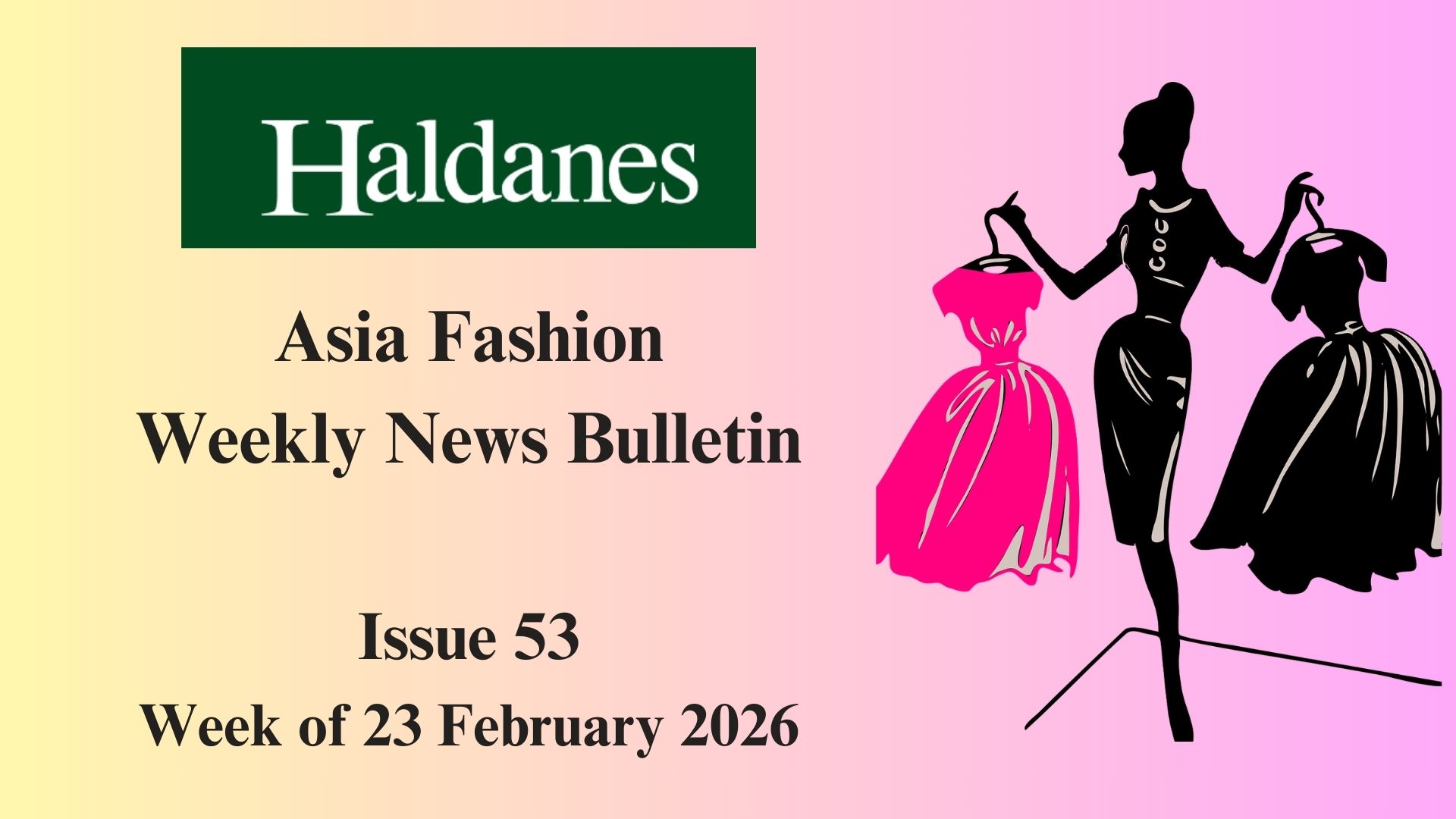Asia Fashion Weekly News Bulletin – ISSUE 12 Week of 28 April 2025
(1) A toothy little monster called Labubu is the latest fashion craze
The latest release of Labubu dolls has created a fashion craze, with collectors dressing them as accessories and celebrities showcasing them alongside luxury items.
(2) End of Cheap Hauls? Shein’s Prices Are Soaring for US Buyers Before Tariffs Bite
Shein has raised prices significantly on various products, with some categories seeing increases of up to 377%.
(3) Apparel industry welcomes Government. efforts in US trade dialogue
The Joint Apparel Association Forum (JAAF) has praised the Sri Lankan Government’s engagement with the US to improve trade relations, advocating for equitable tariff arrangements that support the long-term sustainability of Sri Lanka’s apparel industry.
(4) Why are European luxury brands caught in China-US trade war crossfire?
Professionals in the Paris fashion industry are concerned about viral TikTok claims that high-end luxury goods are made in China.
(1) A toothy little monster called Labubu is the latest fashion craze
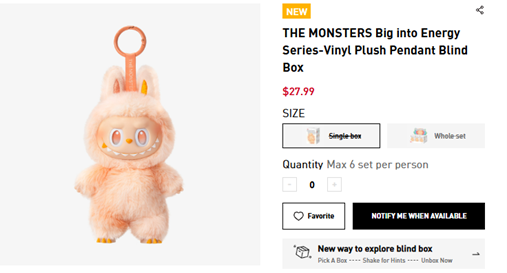
(Photo Credit: Pop Mart)
The latest release of Labubu dolls from Pop Mart has sparked a frenzy among collectors, with the new collection selling out within seconds after its launch. Retailing at $27.99 for a single blind box or $167.94 for a set of six, these plush dolls have quickly become a sought-after status symbol, leading many resellers to list them at prices more than double their original cost on platforms like eBay.
Labubu dolls are not just collectibles; they have become fashionable accessories for many enthusiasts. This trend has even led to a market for custom accessories designed specifically for Labubu, allowing fans to express their creativity and individuality through these plush figures. The playful nature of Labubu offers a nostalgic escape for adults, allowing them to reconnect with their childhood through fashion.
The popularity of Labubu dolls has also attracted attention from celebrities, further solidifying their status in the fashion world. Stars like Rihanna and Blackpink’s Lisa have been spotted with Labubu charms on their handbags, blending luxury fashion with these quirky collectibles. The evolving nature of fashion, where items traditionally considered low-end can now be paired with luxury brands, creating a unique and modern style statement.
News Source: https://www.nbcnews.com/pop-culture/pop-culture-news/labubu-craze-viral-lines-pop-mart-stores-rcna203213
(2) End of Cheap Hauls? Shein’s Prices Are Soaring for US Buyers Before Tariffs Bite
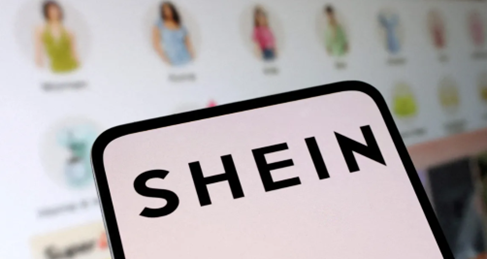
(Photo Credit: Reuters/ Shein)
American consumers are beginning to feel the impact of an escalating trade war as Shein Group Ltd raises prices on its products ahead of new tariffs targeting small shipments from China. Shein implemented significant price hikes across various categories, with beauty and health items experiencing the most substantial increases, averaging 51% compared to the previous day. Homeware, kitchen items, and toys saw price jumps of around 30%, including a staggering 377% rise in the cost of a 10-piece set of kitchen towels, while women’s clothing prices increased by 8%.
This surge in prices comes as the US government prepares to dismantle the “de minimis” exemption, which previously allowed goods valued under $800 to enter without tariffs from China and Hong Kong. Starting 2 May 2025, this exemption will be replaced by a 120% tariff, along with new postal fees that are set to increase again in June.
The combination of these new tariffs and rising prices marks a significant shift for American consumers who have relied on affordable imports from Shein and similar retailers. As costs rise, shoppers may need to adjust their purchasing habits in response to the changing landscape of international trade.
News Source: https://www.supplychaindive.com/news/hermes-raises-prices-tariffs-q1-earnings/745764/
(3) Apparel industry welcomes Government. efforts in US trade dialogue
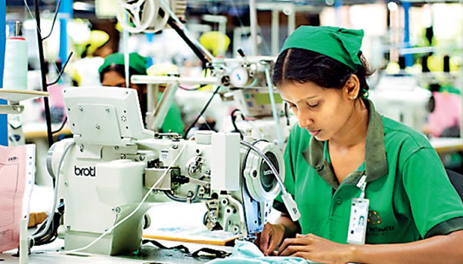
(Photo Credit: DailyFT)
The Joint Apparel Association Forum (JAAF) has welcomed the Sri Lankan Government’s proactive engagement with the US Office of the Trade Representative, expressing appreciation for the efforts to enhance trade relations between Sri Lanka and the United States. JAAF highlights the importance of the US as a long-standing trading partner for Sri Lanka’s apparel industry, which directly supports 350,000 jobs and contributes to the livelihoods of an additional 700,000 people in the country.
JAAF advocates for tariff arrangements that ensure parity with those offered to other apparel-producing nations, aiming to create a level playing field for Sri Lankan exporters. The association underscores the need for both governments to consider the long-term sustainability of Sri Lanka’s apparel sector, which is a key pillar of the national economy and a global leader in ethical manufacturing.
As discussions progress towards a potential bilateral trade agreement, JAAF emphasises the industry’s commitment to traceability, transparency, and sustainability, aligning with international ethical standards. The association is optimistic about Sri Lanka’s position as a responsible sourcing destination and looks forward to ongoing dialogue that enhances trade, attracts investment, and fosters shared prosperity.
News Source: https://www.ft.lk/front-page/Apparel-industry-welcomes-Govt-efforts-in-US-trade-dialogue/44-775926
(4) Why are European luxury brands caught in China-US trade war crossfire?
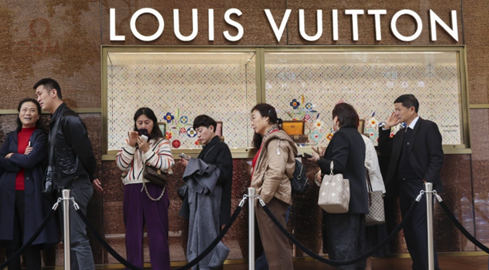
(Photo Credit: SCMP)
Fashion industry professionals in Paris are expressing concern about being caught in the crossfire of the China-US trade war, particularly as viral TikTok videos from Chinese factory operators claim that many high-end European luxury goods, such as bags from Louis Vuitton, Chanel, and Hermes, are actually made in China at low costs before being shipped to Europe for final assembly and branding.
Benedicte Epinay, head of Comite Colbert, along with current and former industry workers, emphasise that the craftsmanship required for luxury items takes years to develop, and there is a severe shortage of skilled labour in France. LVMH, which owns Dior, states it has numerous workshops across France and Italy, while Hermes confirms it has production sites exclusively in France and select other countries, but not in China.
In response to the misinformation on social media, Epinay noted that a French anti‑counterfeit association has contacted platforms like TikTok and Meta to address these claims. While some luxury brand sales assistants acknowledge that customers understand they are paying for design and brand reputation, the controversy highlights the complexities of production and branding within the luxury goods market, including regulations around the “Made in France” label, which requires significant local transformation of products.
News Source: https://www.scmp.com/economy/china-economy/article/3307936/why-are-european-luxury-brands-caught-china-us-trade-war-crossfire


